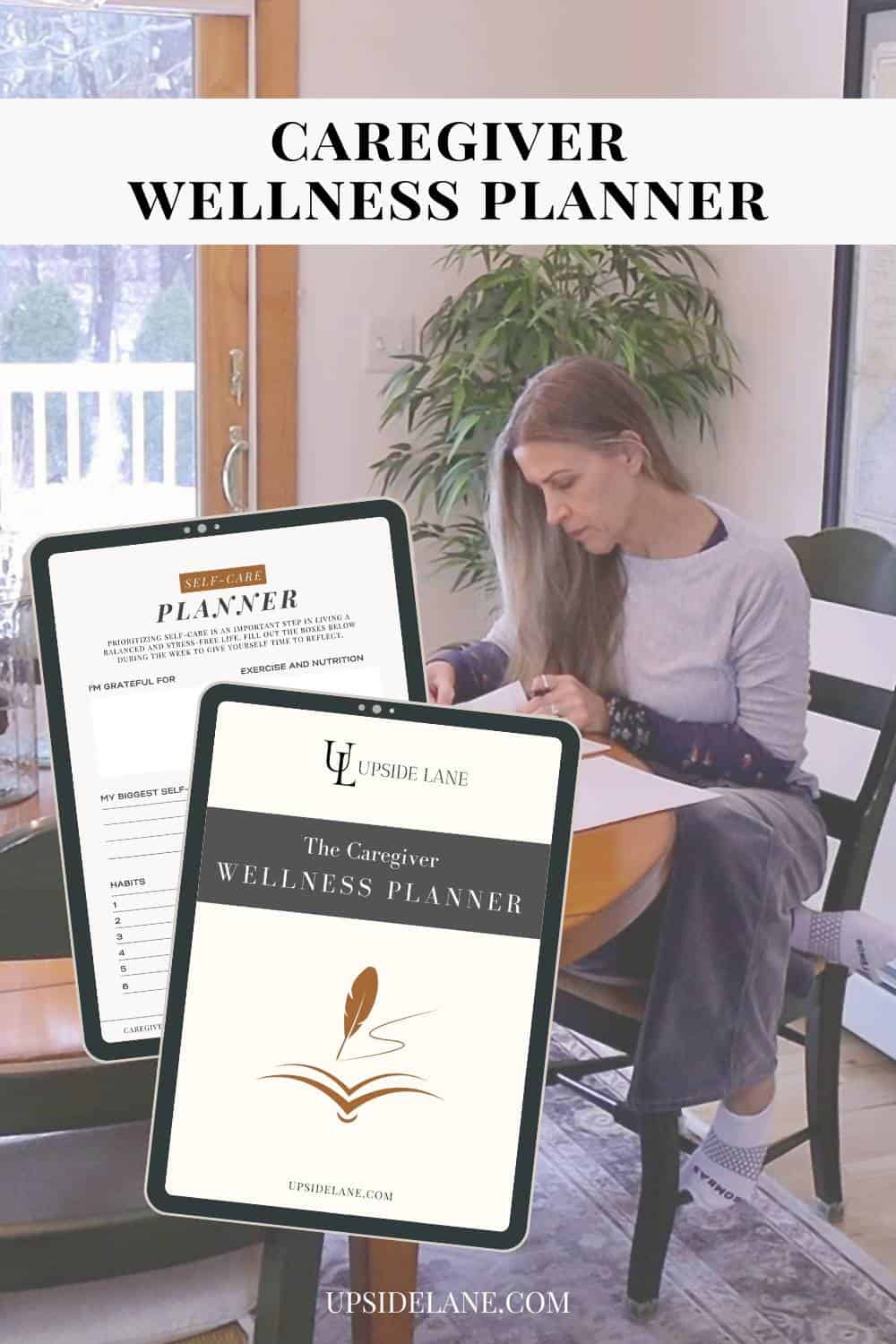Stop Feeling Overwhelmed: Good And Bad Ways To Cope
Feeling overwhelmed can be a normal stress response, sometimes it can even help us be more productive. Learn good and bad ways to cope with overwhelming feelings.

NOTE: This post has been updated since it was originally published on April 20, 2023.
As a caregiver who helps Doug manage Parkinson’s disease, feeling overwhelmed and, admittedly, negative feelings do sometimes creep into my anxious brain.
I try not to be judgemental, and I let the overwhelming feelings wash over me, like rushing water over rocks in a waterbed.
Then I think to myself, “This too shall pass” – but it is not always easy.
Feeling overwhelmed at times is a perfectly normal response to stress, anxiety, and a large to-do list.
The American Psychological Association states stress, in short bursts, can even be helpful, motivating us to be more productive. For example, clearing our to-do list so that we can relax and not feel so burdened.
Caregiving is a rewarding experience, however, negative feelings do sometimes creep in. This is normal and we shouldn’t feel any guilt or shame.
However, it is important to learn how to deal with feelings of overwhelm in a healthy manner.
There are many different ways to manage emotional overload, some healthy and some not so much.
Let’s look at how to deal with feeling overwhelmed maturely and healthfully.
This article may contain affiliate links for your convenience, which means I make a small commission at no extra cost to you. You can read my full disclosure policy here.
The Link Between Emotions and Physical Well-Being
Intense emotions can be hard to manage sometimes, especially when feeling physically fatigued and tired.
Strong feelings, particularly negative emotions, can sometimes affect our physical health. I’m sure you have experienced a stomach ache when you were feeling nervous or a headache when stressed.
That is no coincidence. Our bodies are designed to work as a whole, where everything is linked together.
So when we experience a traumatic event or feel intense overwhelming emotions, our bodies are going to react physically.
There is a connection between intense emotions and disease, and research suggests anxiety, depression, and anger can be contributory risk factors for coronary heart disease.
Negative difficult emotions can also lead to a low tolerance or an increased sense of pain.
The good news is the reverse is also true. Positive emotions can lead to increased tolerance and a potentially decreased sense of pain.

Navigating Emotions: Finding The Balance
When we are going through difficult times and having negative thoughts or emotional outbursts, don’t let that be your breaking point.
The first step toward halting this spiral is to stop, take a few deep breaths, and realize you are not alone.
Overwhelming emotions happen to all of us and this is not a bad thing in and of itself.
The important thing is to address your stress levels and emotions, rather than suppressing them and allowing your emotions to simmer inside of you.
Things go awry when we do this, potentially leading to chronic stress and other mental health issues.
5 Effective Strategies When Feeling Overwhelmed
Let’s look at five tools to help us healthily handle emotional overload.
Healthy Tip #1. Deep Breathing Exercises
Breathwork is a great way to almost instantly help us connect back to our bodies. Whenever we are experiencing heightened emotions, take a few deep cleansing breaths.
Box breathing. There are a lot of different methods of breathwork, but one of the easiest methods is called “box breathing” or the “4-4-4-4 method”.
- Breathe in for a count of 4
- Hold for a count of 4.
- Then purse your lips and breathe out for a count of 4.
- Hold for a count of 4.
Hence the box method, with a box having four sides to it.
Healthy Tip #2. Progressive Muscle Relaxation Exercises
Progressive muscle relaxation exercises are powerful relaxation techniques, they are a productive way to ease stress and anxiety within the body.
All it entails is tightening, or clenching, parts of your body for 10-15 seconds, and then releasing the tension and relaxing.
You can start either at the top of your head and work down, or in reverse by starting at your toes and working your way up toward the top of your head.
The important thing is to do one body part at a time, and slowly work your way down, or up, the body.
Healthy Tip #3. Journaling
Keeping a journal is a wonderful tool to help combat overwhelming emotions, and. it is one of my favorite techniques for reducing feelings of stress and anxiety.
For me, it helps stop the spiraling thoughts running through my brain whenever I am feeling emotional and tense.
Journaling is as easy as writing your thoughts and feelings down on paper. So grab a notebook, or a piece of paper, and start writing.
Don’t overthink things, just write. Big things, small things, and everything in between. There is no right way to keep a journal.
I use my journal as a type of prayer journal. Talking directly to God and getting things off my chest.
Healthy Tip #4. Proper Sleep
Sleep is a wonderful way to help your body physically handle the mental and emotional overwhelm that occurs throughout the day.
Sleep triggers the body’s relaxation response, helping to reduce the stress hormone cortisol as well as other stress hormones.
Healthy Tip #5. Walking
Walking is another great way to reduce stress and overwhelming emotions.
When we walk in nature it helps us stay in the present moment and activates the parasympathetic nervous system, which then helps to reduce our blood pressure and heart rate, and it puts us in a more relaxed state of mind.

5 Unhealthy Coping Strategies For Emotional Overwhelm
We all have coping mechanisms that help us manage overwhelming emotions.
Some of these strategies can be a productive way to manage overwhelming thoughts and feelings, however, other coping mechanisms can be destructive and unhealthy.
Stressful situations are inevitable but we do not want to be led by traumatic experiences, or by unhealthy established defense mechanisms that are not healthy.
Here are five examples of unhealthy coping mechanisms we may gravitate toward when we are feeling overwhelmed.
Unhealthy Strategy 1: Screen Time
We all love to relax in front of our screens – either the television, laptop, phone, or even a gaming console.
However, when we spend a lot of time in front of a screen to distract ourselves from our emotions, our brains do not rest.
Have you heard the term “wired and tired”? Welp, that’s what can happen if we spend too much time on our screens, and it isn’t a very healthy coping mechanism.
Unhealthy Strategy 2: Social Media
Spending a lot of time distracting ourselves on social media is all a part of lengthy screen time.
Looking at and comparing our lives to those glamorous social media accounts does us zero favors.
It is best to face our emotions, go for a walk, and keep the gazing on social media to a minimum.
Unhealthy Strategy 3: Video Games
Video games are another part of extended screen time. Once one starts gaming, it is super easy to just keep playing!
Video games, like other screen time tactics, stimulate the nervous system and can exacerbate an already exhausted emotional and mental state.
Therefore, it is important to be mindful of your gaming screen time.
Unhealthy Strategy 4: Food
Food as a coping mechanism is tricky because we need to eat to fortify ourselves but the difference is, are we doing it with nutrient-dense food or highly processed sugary junk food?
It is very easy, in the heat of the moment, to grab unhealthy comfort food, but over time this sets up an unhealthy coping mechanism – both for your physical and emotional health.
Unhealthy Strategy 5: Alcohol and Recreational Drugs
Alcohol and/or recreational drugs are all too common for people to use as unhealthy coping mechanisms regarding dealing with powerful emotions.
I am not here to judge whether you do or do not drink or use recreational drugs but if you are using them daily, or you feel a deep need to use them to cope, well those definitely can be some red flags.
These coping mechanisms are not a good idea long term, and they can have real negative consequences.
The next time you struggle with overwhelming emotions, avoid catastrophic thoughts and an emotional meltdown.
The first step is to pause, take a moment to breathe, and use one or two of the healthy coping mechanisms to take charge of your situation.
Use the key steps and tips outlined above as effective ways to reduce feelings of overwhelm and create positive memories in your daily life.

Caregiver Wellness Planner
A Self-Care Wellness Printable Planner designed specifically for caregivers
Professional Support When Needed: It’s Okay To Ask For Help
If you find that you are experiencing emotional overwhelm to the point where you do not feel like you can help yourself get back into a healthy state of mind, please seek a professional to help you cope.
There is absolutely nothing wrong with getting professional advice, and it does not make you weak or small. If anything, good for you for taking such good care of yourself!
As a caregiver, I believe it is important to have a competent therapist on call, or at least at the ready in case they are needed.
Caregiving is a beautiful and rewarding endeavor, but it can also be challenging, and emotionally and physically draining sometimes.
Do not think twice about seeking professional counseling if your emotions get too overwhelming and you are having difficulty coping.
Online therapy. Consider online therapy if you find it challenging to leave the house. Since COVID-19, professional counseling online has grown greatly.
As a Lifestyle Medicine Nurse, I have clients who use Talkspace and work with therapists online. Many have good things to say about them.
Online therapy is just a matter of doing your research, and finding a counselor whom you can connect with.
Nurturing Emotional Well-Being
All of these are key factors that support emotional regulation and help meet our emotional needs.
Taking care of our emotional needs is also a crucial step toward developing emotional intelligence. When we acknowledge and address these needs, we enhance our ability to manage emotions effectively, make thoughtful decisions, and build stronger relationships.
Prioritizing self-care and emotional well-being is not only vital for personal growth but also for fostering a greater sense of resilience in the face of challenges.
By recognizing the importance of these factors, we cultivate a healthier, more balanced emotional life.
More Helpful Articles
- Caregiver Loneliness: Tips to Prevent Feeling Alone
- The Mental Health Benefits of Crocheting
- 5 Beautiful Thank You Poems Of Gratitude And Appreciation
- How To Design A Night Routine For Better Sleep
Let’s Connect
I hope you enjoyed this article on how to stop feeling overwhelmed, and the good and bad strategies we sometimes use to help us cope.
QUESTION. What are some healthy strategies you use when you are feeling overwhelmed? Do you have any “poor coping techniques” you’d like to get rid of?
Let me know in the comment section below. I’d love to hear from you.






